If you are a professional, researcher, analyst, or student requiring high computational power, great memory and storage, and possibly a good GPU for tasks like machine learning, then this best laptop for data science is for you.
Table of Contents
To find the best laptops for data science, you must consider several factors. A responsive operating system, fast CPU, and enough storage are needed for data science to handle various data types and insights. As a data scientist or student, your laptop is essential for project and analysis completion.
Data scientists need powerful, memory-rich computers to work efficiently. Finding the best laptop for data science can take hours of research, reading reviews, and comparing specs. Assessing each model’s features and how well they meet your needs will help you find the best data science laptop. Consider processing power, memory, storage, graphics, and portability.
Carefully examining these features will help you choose the best laptop for data science performance, reliability, and value. Whether you value processing speed, storage capacity, or portability, the right laptop can boost data analysis and modeling productivity.
However, if you’re a college student on a budget, you might also be interested in exploring options like free laptops for college students to meet your academic needs.
List of Top 8 Best Laptops for Data Science
1. HP Envy 17T
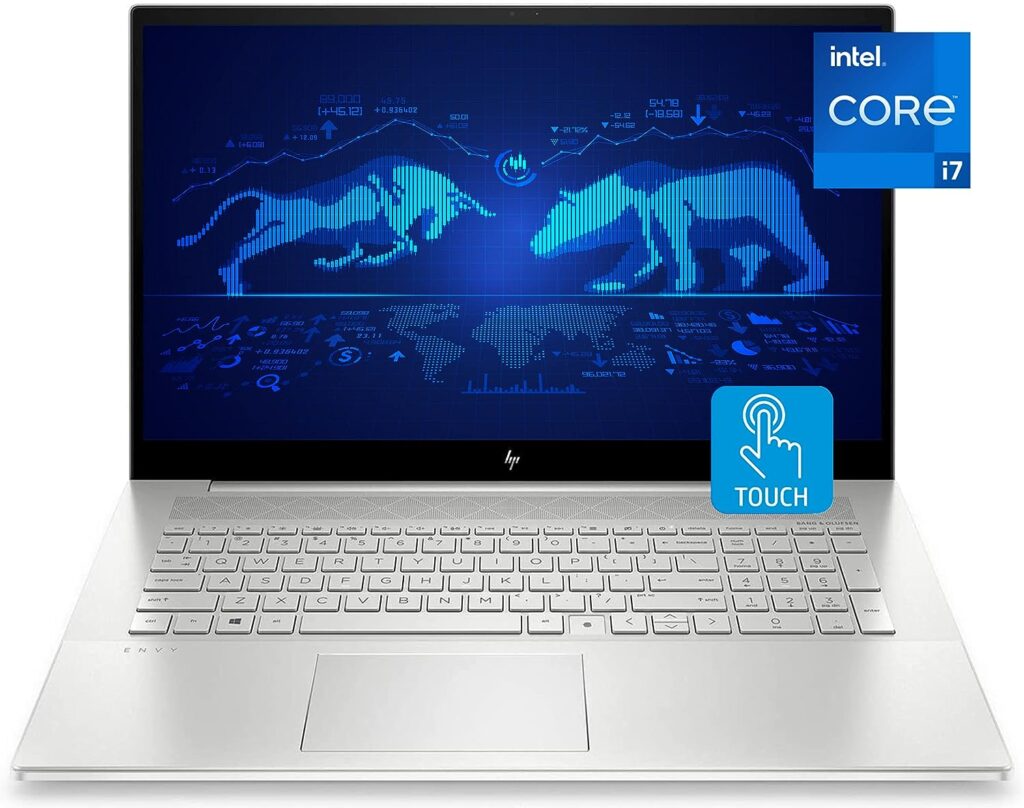
The HP Envy 17T is designed to meet the demands of data science and mathematical studies with its powerful specifications. With a 10th Gen Intel i7 processor and 16 GB of RAM, it offers seamless multitasking and high-performance processing capabilities. The inclusion of a 1 TB SSD ensures great storage space for large datasets and software applications.
Specifications
- Processor: 10th Gen Intel i7-1065G7 processor
- RAM: 16 GB
- Storage: 1 TB SSD
- GPU: NVIDIA GeForce 4GB GDDR5
- Display: 17.3′′ Full HD IPS
- Operating System: Windows 11
- Battery Life: 15 hours
Pros :
- Powerful 10th Gen Intel i7 processor
- Ample 16 GB RAM and 1 TB SSD storage
- NVIDIA GeForce GPU for enhanced graphics
- Large 17.3′′ Full HD IPS display
- Runs on Windows 11 with a user-friendly interface
- Impressive 15-hour battery life
- Stylish design and build quality
Cons:
- Larger size may reduce portability
- Possible increase in weight due to discrete GPU
- Higher-end configurations can be expensive
Why is this laptop good for data science?
The HP Envy 17T stands out as a good choice for data science projects because of its powerful specifications and versatile features. With a powerful 10th-generation Intel i7 processor and 16 GB of RAM, this laptop has the processing power to handle complex data analysis tasks efficiently.
The spacious 1 TB SSD storage ensures quick access to large datasets, allowing data scientists to work with their data without encountering performance bottlenecks. Furthermore, the inclusion of an NVIDIA GeForce GPU improves graphics performance, making it ideal for data visualization and analysis.
2. Lenovo ThinkPad T490
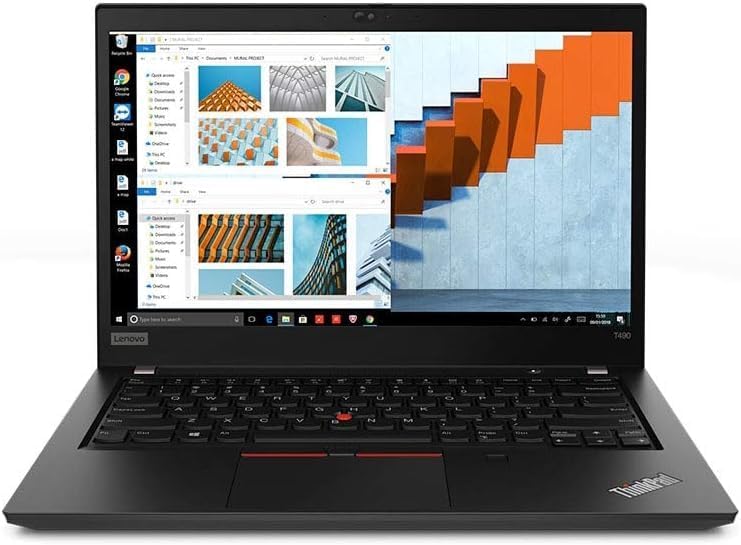
The Lenovo ThinkPad T490 stands out as a reliable choice for data analysis, boasting a durable build and an exceptional keyboard. Its Intel Core i7 processor and generous 16GB DDR4 RAM configuration ensure smooth handling of complex data tasks. With a spacious 512GB NVMe SSD, data analysts can efficiently manage large datasets.
The inclusion of Intel Iris Xe graphics complements its processing power. Moreover, the T490’s impressive battery life of up to 12 hours provides extended productivity sessions without frequent recharging.
Specifications
- Processor: Intel Core i7–1165G7
- RAM: 16GB DDR4
- Storage: 512GB NVMe SSD
- Graphics: Intel Iris Xe
- Battery Life: Up to 12 hours
Pros:
- Durable build quality
- Excellent keyboard
- Powerful Intel Core i7 processor
- Great 16GB DDR4 RAM
- Spacious 512GB NVMe SSD storage
- Intel Iris Xe graphics
- Up to 12 hours of battery life
Cons:
- Graphics performance may be limited for intensive tasks
- Relatively lower resolution display compared to some competitors
Why this laptop is good for data science?
The Lenovo ThinkPad T490 is an excellent choice for data science due to its sturdy build and powerful specifications. With an Intel Core i7 processor and 16GB DDR4 RAM, it has enough processing power and memory to handle complex data analysis tasks effectively.
The 512GB NVMe SSD provides fast storage for large datasets, and the Intel Iris Xe graphics ensure smooth performance during data visualization tasks. Furthermore, its long battery life of up to 12 hours ensures continuous productivity during lengthy work sessions, making it an ideal companion for data scientists on the go.
3. MSI GS65
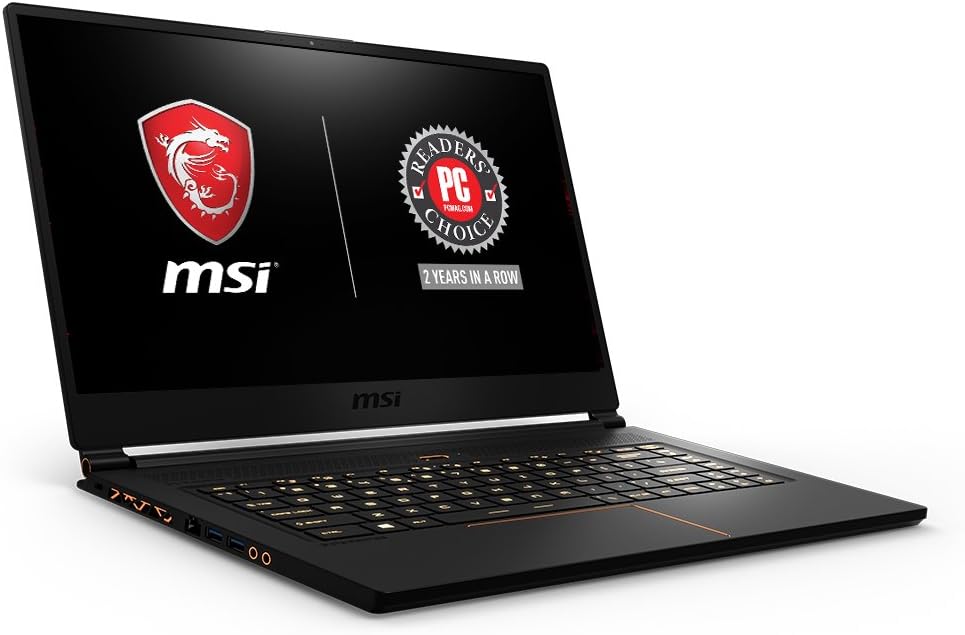
The MSI GS65, tailored for gaming enthusiasts, doubles as a challenging platform for data analysis tasks. Featuring an Intel Core i9–11980HK processor, 32GB DDR4 RAM, and a 1TB NVMe SSD, it delivers exceptional performance for handling large datasets and computational workloads.
Its NVIDIA GeForce RTX 3080 GPU provides substantial graphics processing power, ideal for data visualization tasks. Despite its gaming-centric design, the GS65 offers a compelling option for data professionals requiring high-performance computing capabilities.
Specifications
- Processor: Intel Core i9–11980HK
- RAM: 32GB DDR4
- Storage: 1TB NVMe SSD
- Graphics: NVIDIA GeForce RTX 3080
- Battery Life: Up to 6 hours
Pros:
- High-performance Intel Core i9 processor
- Dedicated NVIDIA GeForce RTX 3080 GPU
- Large 32GB DDR4 RAM and 1TB NVMe SSD storage
- Premium build quality
- Suitable for gaming and demanding data analysis tasks
Cons:
- Relatively shorter battery life
- This laptop is heavier and bulkier than ultraportable models.
Why this laptop is good for data science?
The MSI GS65, which was originally designed for gaming, has powerful specifications that make it ideal for data science applications. Its Intel Core i9 processor and NVIDIA GeForce RTX 3080 GPU deliver powerful processing and graphics performance for large datasets and complex algorithms.
It has 32GB of DDR4 RAM and a 1TB NVMe SSD, providing plenty of memory and storage capacity for data analysis workloads. While its battery life is limited to up to 6 hours, its superior performance and premium build quality make it an appealing option for data scientists who require top-tier performance.
4. Apple MacBook Pro
The Apple MacBook Pro, powered by the innovative M1 chip, offers exceptional performance and energy efficiency tailored for data analysis tasks. With 16GB Unified Memory and a 512GB SSD, it provides great storage and memory for data-intensive applications.
Its integration with macOS enhances compatibility with popular data analysis tools such as Python, R, and Jupyter notebooks. Boasting an outstanding battery life of up to 17 hours, the MacBook Pro ensures prolonged usage without interruption.
Specifications
- Processor: Apple M1
- RAM: 16GB Unified Memory
- Storage: 512GB SSD
- Graphics: Apple M1 GPU
- Battery Life: Up to 17 hours
Pros:
- Innovative Apple M1 chip for impressive performance and energy efficiency
- Unified memory architecture
- Fast 512GB SSD storage
- Optimized macOS ecosystem for data analysis tasks
- Exceptional battery life of up to 17 hours
Cons:
- Limited software compatibility compared to Windows-based laptops
- Fewer ports and limited upgradability
Why this laptop is good for data science?
The Apple MacBook Pro, which is powered by the innovative M1 chip, is an appealing choice for data science tasks. Its unified memory architecture and fast SSD storage allow for seamless multitasking and data processing. The optimized macOS ecosystem improves compatibility with common data analysis tools like Python, R, and Jupyter notebooks.
With an impressive battery life of up to 17 hours, data scientists can work for extended periods without having to recharge. Furthermore, the MacBook Pro’s sleek design and portability make it a top choice for professionals who value both performance and appearance.
5. Asus ROG Strix G
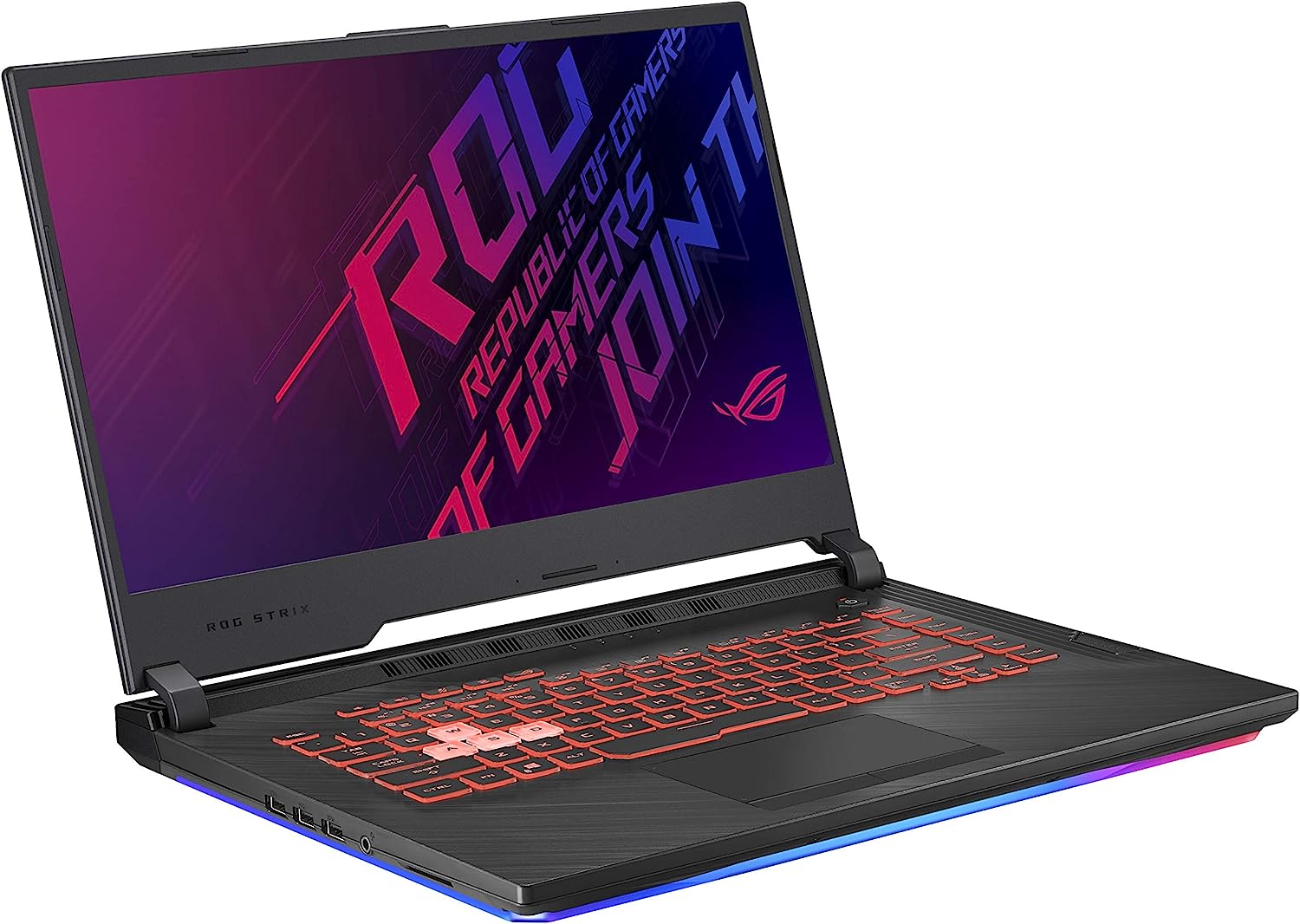
The Asus ROG Strix G, originally designed for gaming, proves its mettle in data analysis with an AMD Ryzen 9 5900HX processor and an NVIDIA GeForce RTX 3080 GPU. Backed by 32GB DDR4 RAM and a 1TB NVMe SSD, it efficiently handles large datasets and compute-intensive computations.
Despite its gaming-oriented design, the ROG Strix G emerges as a versatile choice for data professionals seeking robust performance.
Specifications
- Processor: AMD Ryzen 9 5900HX
- RAM: 32GB DDR4
- Storage: 1TB NVMe SSD
- Graphics: NVIDIA GeForce RTX 3080
- Battery Life: Up to 6 hours
Pros:
- Powerful AMD Ryzen 9 processor
- High-end NVIDIA GeForce RTX 3080 GPU
- 32GB DDR4 RAM
- Spacious 1TB NVMe SSD storage
- Suitable for both gaming and data analysis tasks
Cons:
- Relatively shorter battery life
- Heavier and bulkier compared to other options
Why this laptop is good for data science?
While primarily intended for gaming, the Asus ROG Strix G impresses with its suitability for data science tasks. The AMD Ryzen 9 processor and NVIDIA GeForce RTX 3080 GPU provide excellent performance and data processing capabilities.
With 32GB of DDR4 RAM and a 1TB NVMe SSD, it has plenty of memory and storage to handle large datasets and run complex algorithms. While its battery life is limited to up to 6 hours, its impressive specifications make it an appealing option for data scientists looking for performance and versatility.
6. Razer Blade Pro 17
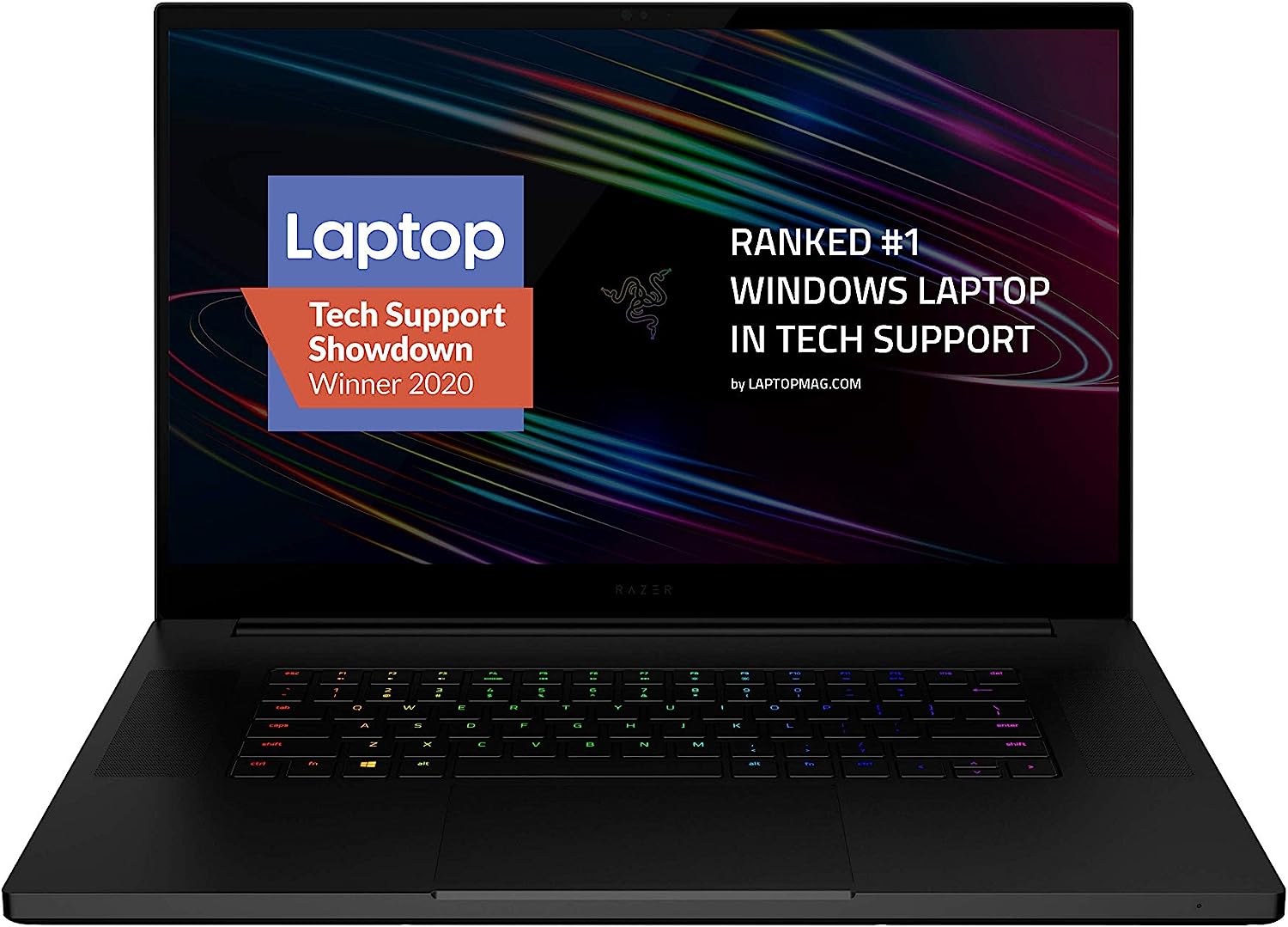
The Razer Blade Pro 17 offers a sleek design coupled with great performance for data analysis tasks. Featuring an Intel Core i9–11980HK processor, 32GB DDR4 RAM, and a 1TB NVMe SSD, it excels in managing complex datasets and running resource-intensive software.
Its NVIDIA GeForce RTX 3080 GPU and high-refresh-rate display enhance visualizations and data processing tasks. With up to 8 hours of battery life, the Razer Blade Pro 17 ensures extended productivity sessions.
Specifications
- Processor: Intel Core i9–11980HK
- RAM: 32GB DDR4
- Storage: 1TB NVMe SSD
- Graphics: NVIDIA GeForce RTX 3080
- Battery Life: Up to 8 hours
Pros:
- Sleek design with high-quality build materials
- Powerful Intel Core i9 processor
- Dedicated NVIDIA GeForce RTX 3080 GPU
- Large 32GB DDR4 RAM and 1TB NVMe SSD storage
- High-refresh-rate display
- Up to 8 hours of battery life
Cons:
- Higher price point
- Limited port selection
Why this laptop is good for data science?
The Razer Blade Pro 17 provides exceptional performance and a sleek design, making it ideal for data science tasks. It is powered by an Intel Core i9 processor and an NVIDIA GeForce RTX 3080 GPU, which provide fast data processing and efficient graphics performance for data visualization.
With 32GB of DDR4 RAM and a 1TB NVMe SSD, it has enough memory and storage capacity to handle large datasets and run resource-intensive applications. The high-refresh-rate display improves the visual experience during data analysis tasks, and the battery life of up to 8 hours allows for productivity on the go.
7. Dell XPS 15 7590
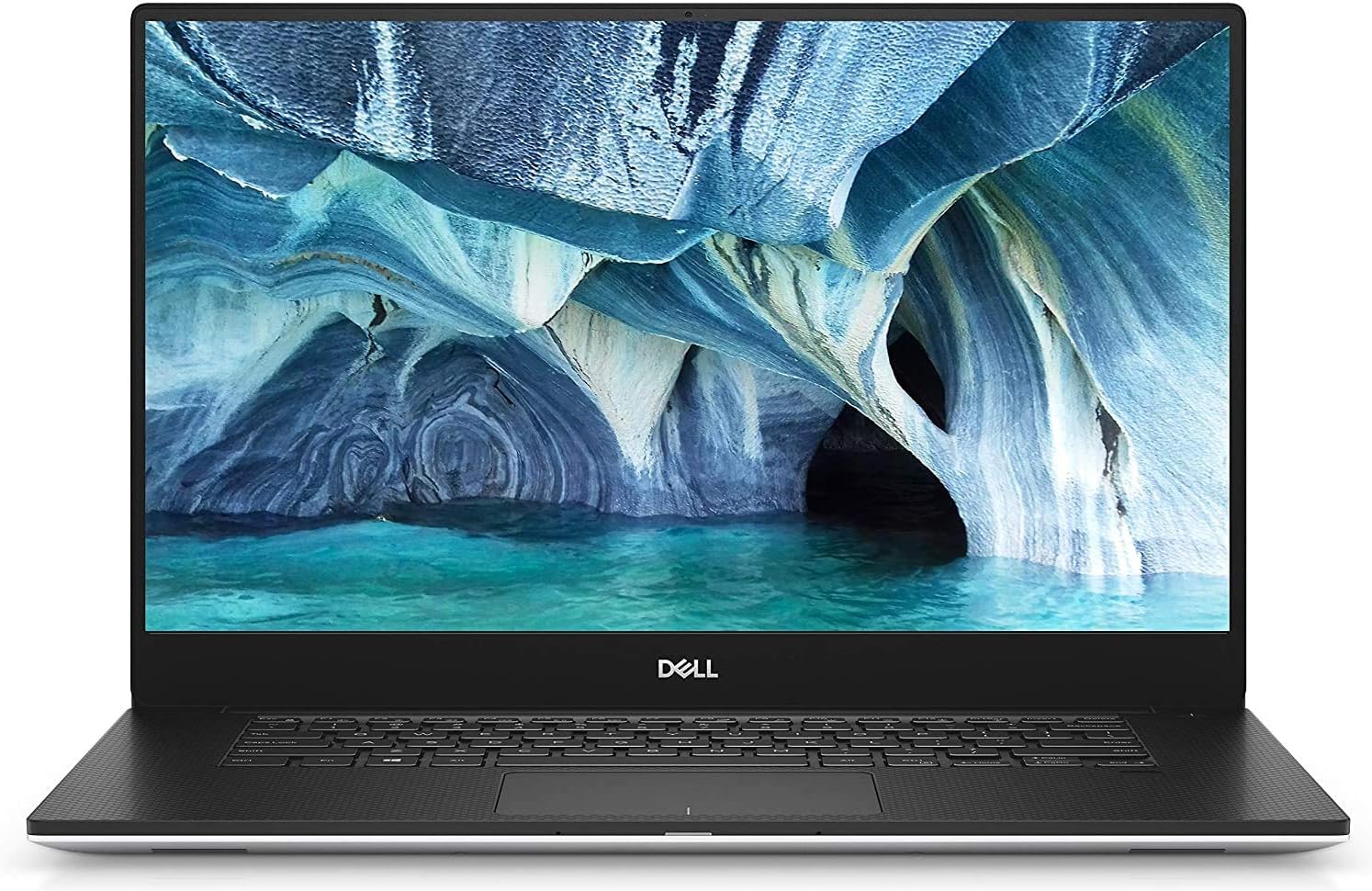
The Dell XPS 15 7590 emerges as a powerhouse for data analysis, equipped with an Intel Core i9–9980HK processor, a substantial 32GB DDR4 RAM, and a capacious 1TB NVMe SSD. Its NVIDIA GeForce GTX 1650 GPU delivers robust graphics processing capabilities, making it suitable for data visualization and machine learning tasks.
While offering up to 8 hours of battery life, the XPS 15 7590 combines performance with portability for on-the-go data analysis needs.
Specifications
- Processor: Intel Core i9–9980HK
- RAM: 32GB DDR4
- Storage: 1TB NVMe SSD
- Graphics: NVIDIA GeForce GTX 1650
- Battery Life: Up to 8 hours
Pros:
- High-performance Intel Core i9 processor
- Generous 32GB DDR4 RAM
- Large 1TB NVMe SSD storage
- Dedicated NVIDIA GeForce GTX 1650 GPU
- Premium build quality and design
- Sharp display with thin bezels
Cons:
- Shorter battery life compared to some competitors
- Higher price point
Why this laptop is good for data science?
The Dell XPS 15 7590 stands out due to its powerful specifications designed for data science workloads. It has an Intel Core i9 processor, 32GB DDR4 RAM, and a 1TB NVMe SSD, providing the processing power and storage capacity needed to handle large datasets and run computationally intensive algorithms.
The dedicated NVIDIA GeForce GTX 1650 GPU improves graphics performance, making it ideal for data visualization applications. Despite its high performance, the XPS 15 7590 is portable thanks to its sleek design and up to 8 hours of battery life, ensuring productivity while on the go.
8. Acer Swift 3
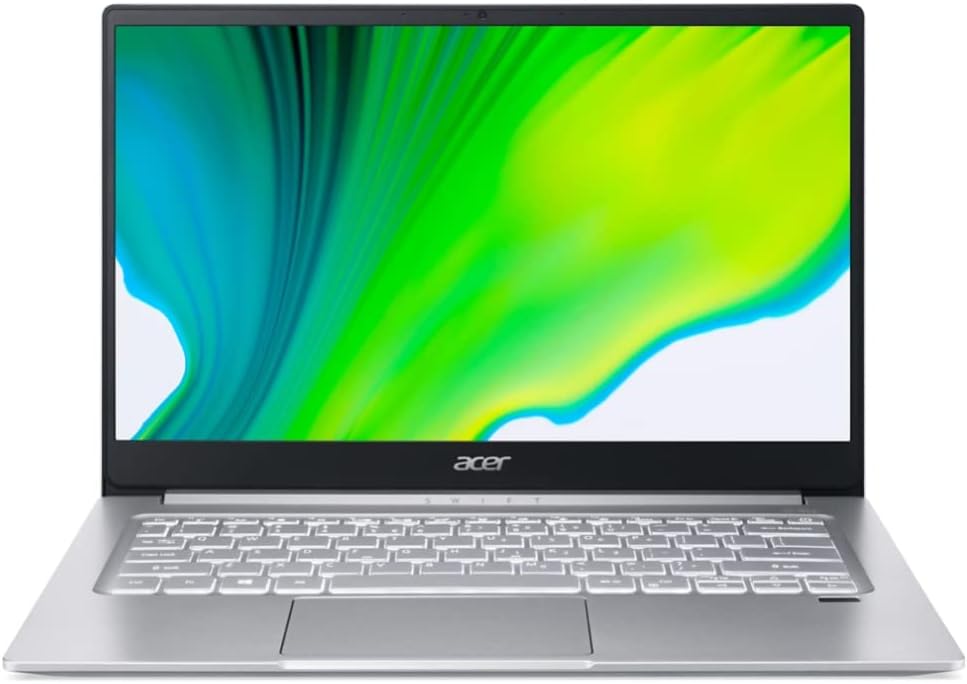
The Acer Swift 3 presents a budget-friendly option without compromising on performance. Powered by an AMD Ryzen 7 5700U processor and 16GB LPDDR4X RAM, it offers efficient multitasking capabilities for data analysis workloads.
With a 512GB NVMe SSD and AMD Radeon Graphics, it strikes a balance between storage, performance, and affordability. The Swift 3’s impressive battery life of up to 11.5 hours further enhances its appeal for data analysts on a budget.
Specifications
- Processor: AMD Ryzen 7 5700U
- RAM: 16GB LPDDR4X
- Storage: 512GB NVMe SSD
- Graphics: AMD Radeon Graphics
- Battery Life: Up to 11.5 hours
Pros:
- Budget-friendly option
- Efficient AMD Ryzen 7 processor
- 16GB LPDDR4X RAM
- Fast 512GB NVMe SSD storage
- AMD Radeon Graphics
- Long battery life of up to 11.5 hours
Cons:
- Less powerful compared to high-end models
- Limited graphics performance
Why this laptop is good for data science?
The Acer Swift 3 provides a cost-effective option for data scientists without sacrificing performance. Its AMD Ryzen 7 processor and 16GB LPDDR4X RAM provide enough processing power and memory to handle data analysis tasks effectively.
The 512GB NVMe SSD provides fast storage for managing datasets, while the AMD Radeon Graphics ensures smooth performance during data visualization tasks. The Swift 3’s battery life of up to 11.5 hours allows for extended productivity without the need for frequent recharging, making it a cost-effective option for data scientists.
FAQs
1. Do I need a laptop for the data science course?
Data science courses involve intricate tasks such as data cleaning and executing machine learning algorithms. To tackle these assignments effectively, a laptop with a robust processor is essential. Look for a device equipped with a fast and potent processor, such as an Intel Core i7 or higher.
2. How much RAM do I need for data analysis?
RAM, or Random Access Memory, is crucial for data analysis tasks. Handling large datasets and intricate calculations demands substantial memory capacity. It’s advisable to opt for a laptop with a minimum of 16 GB of RAM, although having more is advantageous.
3. Which processor is best for data science?
The best CPUs for data science are Intel’s Xeon W and AMD’s Threadripper Pro. These platforms offer high core counts, exceptional memory performance and capacity, and ample PCIe lanes, facilitating seamless data processing and analysis.
4. Is a powerful laptop necessary for data analysis?
Processor performance is paramount for tasks like data analysis, machine learning, and coding. A laptop featuring a robust processor, such as an Intel Core i7 or i9, or an AMD Ryzen 7 or 9, is essential for achieving high-performance processing capabilities.
Conclusion
Choosing a best laptop for data science, data analysis, or related tasks requires careful consideration of processing power, memory capacity, storage options, and portability. Each laptop on the list has unique features and capabilities for different users.
For budget-conscious shoppers without sacrificing performance, the Acer Swift 3 or Lenovo ThinkPad T490 may be a good choice. Although designed for gaming, laptops like the Asus ROG Strix G and MSI GS65 with dedicated GPUs are worth considering for high-performance computing and powerful graphics processing.












Add Comment